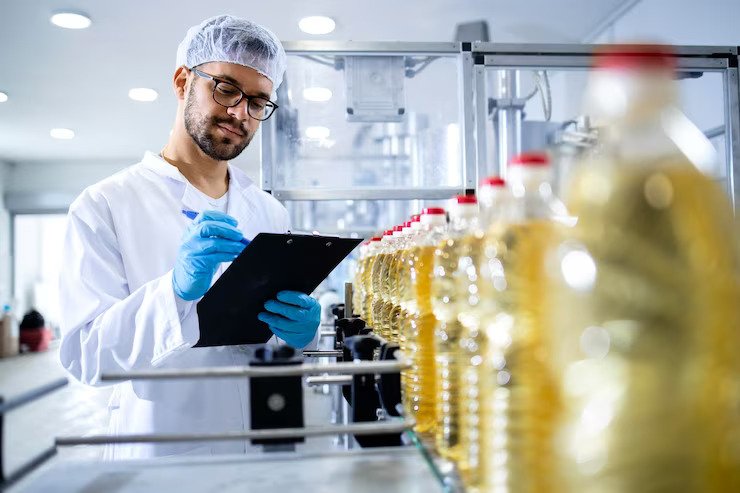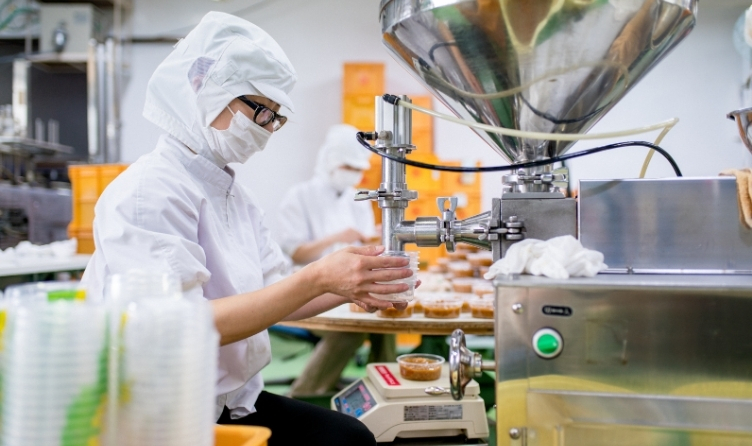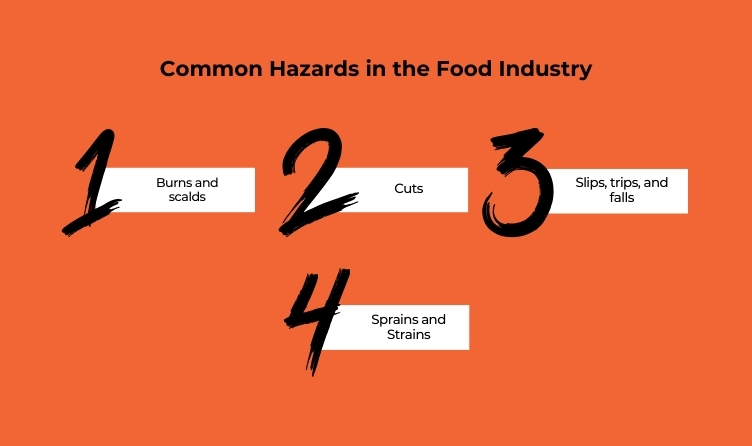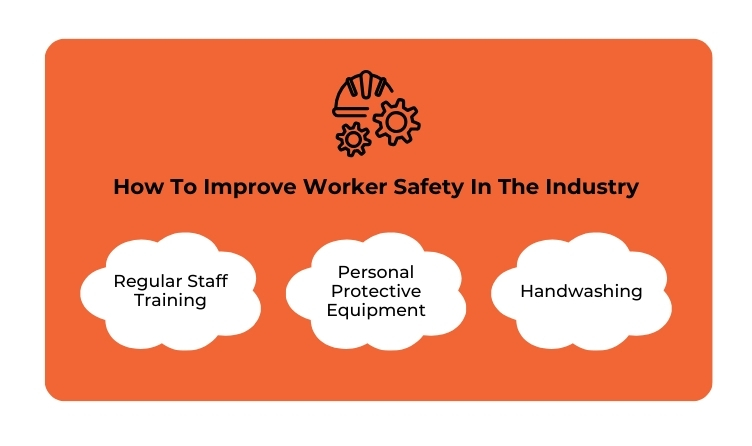How The Health And Safety In the Food Beverage Industry Can Change Everything?
5 Mins Read
Published on: 15 July 2023
Last Updated on: 15 November 2024

toc impalement
The food and beverage industry is extensive, with everything from kitchen settings to manufacturing environments requiring attention to health and safety.
But when honing in on hospitality in particular, what kind of risks are workers exposed to? How can we help prevent them? Stick around to learn answers to these burning questions of the food and beverage industry.
The food and beverage industry
Anyone who works in or around a kitchen setting is exposed to a particular set of risks. With crowded spaces, potentially dangerous objects, and more, combined with a fast-paced atmosphere, there’s great potential for accidents to happen.
While it’s important to uphold health and safety where possible, remember that if you have experienced a severe or life-changing injury in the food and beverage industry, you may be able to claim compensation.
Role Of Safety and Hygienic Practices in the F&B Industry

Before we delve deep into the subject, we must take a moment and understand the role safety and hygiene play in the food and beverage industry.
Honestly speaking, safety hygiene should be a must across all forms of industry. There needs to be some sort of parameter that businesses need to follow for the sake of employee safety and hygiene.
The importance of this requirement triples when the discussion is related to the food and beverage industry. This is a highly delicate industry, as one small mistake can cost someone’s life or health.
Therefore, safety and hygiene not only keep the employees safe but also the customers. Moreover, this is a highly regulated industry. Therefore, there is also the question of following the norm or regulation. One small misstep can bring your business down.
This is the primary role of safety and hygiene in the industry.
Common Hazards in the Food Industry

The food and beverage industry is prone to numerous risks, although some are more common than others. Here are some of the most common hazards one might face while working in this industry.
However, just remember that this is more of an informative list. Therefore, do not let the numbering confuse you. You can approach this section in any order you desire.

Here are a few examples:
1. Burns and scalds:
According to the National Burn Care Review Committee, 250,000 people receive burn injuries annually in the UK. If you work closely with hot stoves or fryers, you’re at risk from severe burns or scalds, which can lead to more serious injuries. It isn’t just the food you should be wary of either, as hot liquids and hot oil can be just as dangerous, as well as hot steam.
2. Cuts:
Something even more likely to happen is being cut, so being diligent is key. Particularly when working at speed, fast cutting techniques, whether that’s dicing or slicing, can result in an accident. Professional knives and tools can be extremely sharp, and using them safely is essential.
3. Slips, trips, and falls:
This type of accident may not feel directly related to the food and beverage industry. However, slips, trips, and falls are always a risk. Liquids and food can be spilled onto the floor, for example, and made even more dangerous if an individual is holding something hot or sharp when they fall.
4. Sprains and strains:
This type of injury occurs more commonly than you might expect. From storing and retrieving items from high surfaces to lifting up heavy items, there are a lot of unsuspecting hazards that put stress on your muscles, ligaments, and more.
What health and safety measures should be taken?
To help prevent these accidents from happening, tidiness and cleanliness are paramount. Floors should be cleaned periodically, and items should be put back into their original position.
Hazard signs should also be used in the interim to highlight anything that could cause injury. On top of this, workers should avoid distracting those handling sharp equipment.
The correct uniform should be worn, such as aprons to help protect yourself from hot substances, and sturdy shoes are necessary.
Accidents often happen due to fatigue. Therefore, workers should take regular breaks and, where possible, spread out any repetitive tasks to avoid a lack of concentration. The layout of the workspace should also be ergonomic and comfortable for workers.
How To Improve Worker Safety In The Industry

Improving worker’s safety can be a challenging ordeal. There are so many points that need to be looked at before you can claim that your food nd beverage business is running smoothly.
In this penultimate section of our article on health and safety in the food and beverage industry, we will be looking at some of the best practices that one needs to follow to stay safe and sound:
Regular Staff Training
Education is the most powerful thing that you can give to your staff on safety and hygiene. Therefore, you must conduct regular staff training and drills.
This will help your staff stay in the loop of things and manage situations if things go bad. Therefore, the training module must be adjusted accordingly.
Personal Protective Equipment
Personal Protective Equipment, or PPE, is crucial in avoiding workplace hazards. Therefore, ensure your staff is well equipped and knows the equipment usage.
The best way to proceed is to provide each employee with a separate and personalized PPE. This stops cross-contamination and ensures that the beverage and the food stay fresh and edible.
Handwashing
Sounds like something out of our mother’s advice book, but washing hands can actually save you from a world of hurt and pain. People who work in the kitchen will agree that it is a tinderbox of bacteria.
In other words, all that food particles can really attract all manner of pests. Therefore, it is very important to motivate your employees to wash their hands. This can help you save yourself and your customers at the same time.
Therefore, keep your hands clean and keep washing them from time to time.
The End
Ultimately, all you need to do is keep your workstation clean and healthy. This is the one and only foolproof health and safety tips that we can give you.
This small piece of advice will not just keep you safe from yourself but will also help you to keep your customers healthy.
Hence, follow these advice and you will be able to handle anything and everything that the food and beverage industry can throw at you.
Read Also:


















Comments Are Closed For This Article